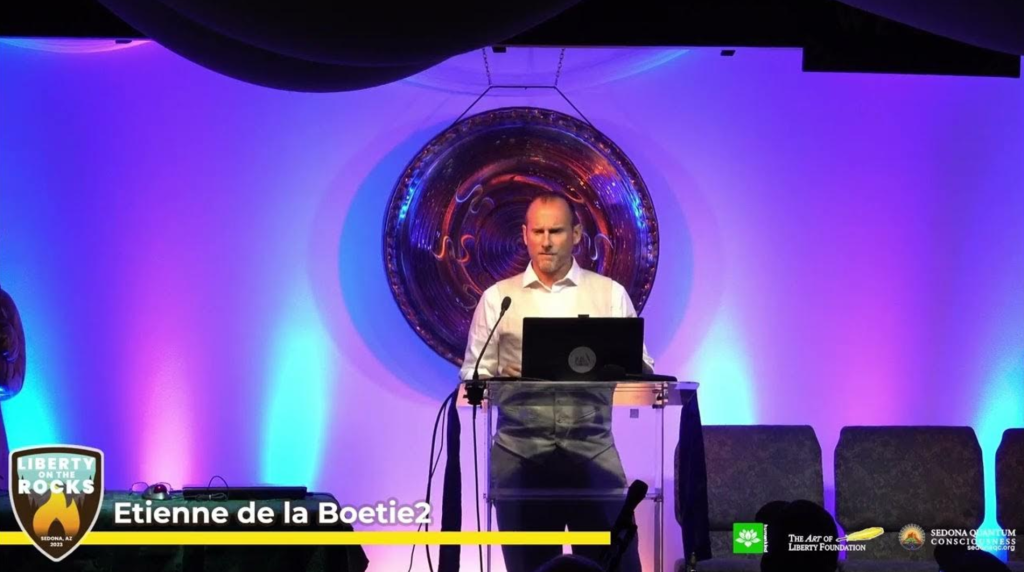Etienne de la Boetie2 is poised to share insights gained from his experiences and his recent speech at Liberty on the Rocks 2023 – The Sedona Sessions, which he believes to be his best presentation yet. The discussion focuses on the upcoming Liberty on the Rocks – 2024 – The Voluntaryism Conference happening in Sedona from November 1-3, 2024, which promises to be an opportunity for individuals interested in voluntaryism and liberty-based discussions. De la Boetie emphasizes the importance of sharing knowledge and experiences, which has prompted him to keep the details of his recent presentation relatively quiet until the promotion of the forthcoming conference.
The introduction by Ernest Hancock sets the stage for de la Boetie’s perspective by discussing how the power of information can lead to changes in society. Hancock recalls a previous guest who inspired de la Boetie through their inventive approach to disseminating information in North Korea using USB drives filled with media. This piqued de la Boetie’s interest and reflects his broader mission of educating the public about the dangers of government and the importance of liberty. Hancock’s experiences illustrate the ripple effect of one person’s actions, demonstrating how sharing knowledge can spark inspiration and lead to significant movements within communities.
De la Boetie’s work culminates in the creation of “Weapons Against Evil,” a book designed to awaken curiosity and critical thought among readers about the nature of government and its perceived role in society. Accompanied by “The Liberator,” a 64GB flash drive containing crucial information, his endeavor aims to provide accessible resources to the public, especially the youth. The conversations surrounding his works foster a culture of inquiry and discussion, where individuals can engage with complex ideas about freedom and governance. Hancock stresses the impact of the book as it finds its place in homes and public spaces, encouraging readers to reflect on the principles of liberty.
Moreover, there is a palpable sense of community formed around de la Boetie’s work, as individuals and groups across the country rally for the cause of freedom. The experiences captured by Hancock underline the transformative potential of de la Boetie’s initiatives. The dissemination of his ideas fosters a movement where people feel empowered to question societal structures and seek deeper understanding. Hancock encapsulates this narrative by highlighting the nature of enlightenment as a collective journey toward recognizing our individual rights and pursuits of happiness amidst societal clouds of misunderstanding or oppression.
As the discourse evolves, the speakers urge the audience to recognize and confront the underlying evils of governance, which are often personified as harmful forces working against common human interests. De la Boetie’s work serves as a vital tool in this mission, combining visual storytelling and factual substance to engage younger generations who are not exposed to these issues in traditional educational frameworks. The narrative emphasizes that awareness and understanding are pivotal in igniting change; even in the darkest of times, humanity has an innate desire to rise against tyranny and oppression.
In conclusion, the conversation amplifies the call to awaken the spirit of freedom and resistance against oppression. The challenges posed by governmental overreach and societal limitations demand innovative responses, and de la Boetie’s contributions provide a blueprint for empowerment. Hancock’s thoughts resonate with de la Boetie’s theme of evoking a conscious challenge against deceptive forces, suggesting that the knowledge and compassion to act against these evils lie within everyone. Through community involvement, education, and a commitment to sharing truth, individuals can realize their potential and collectively cultivate a society rooted in liberty, compassion, and enlightenment.

